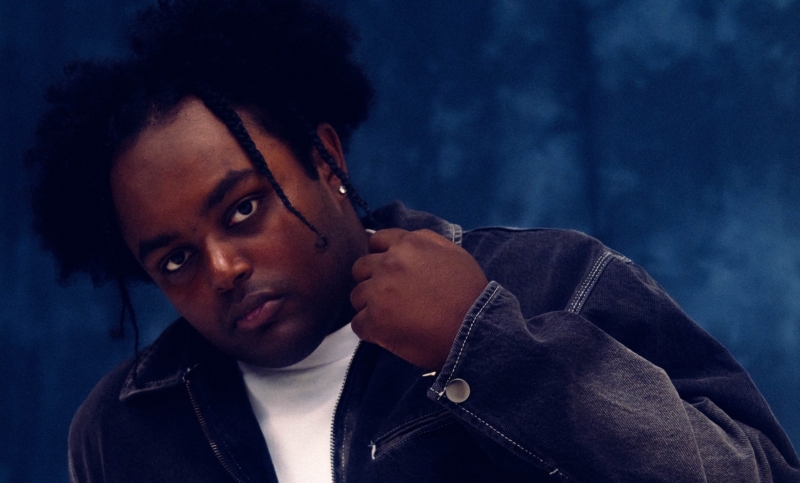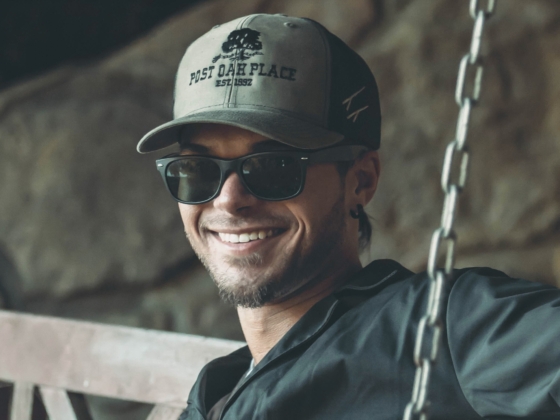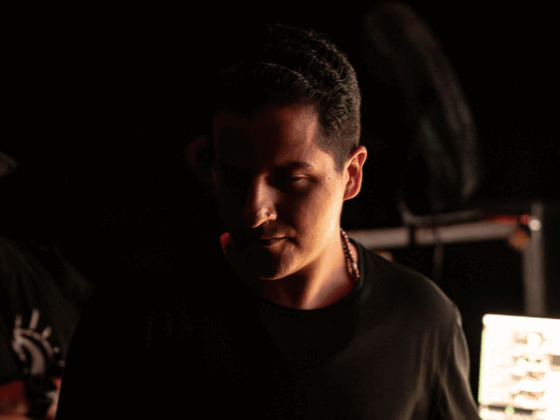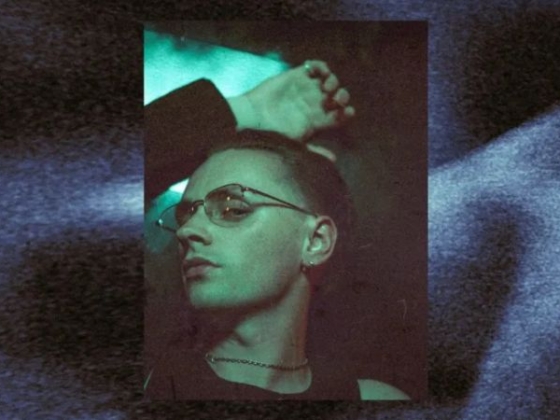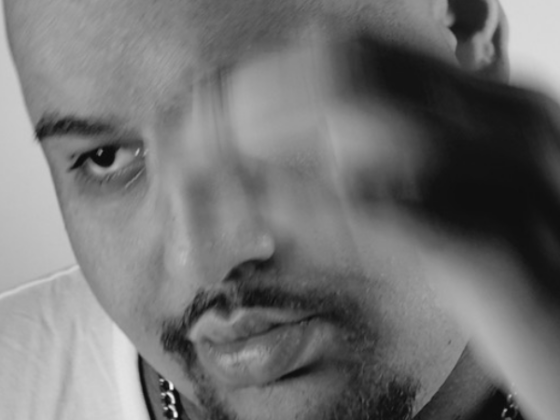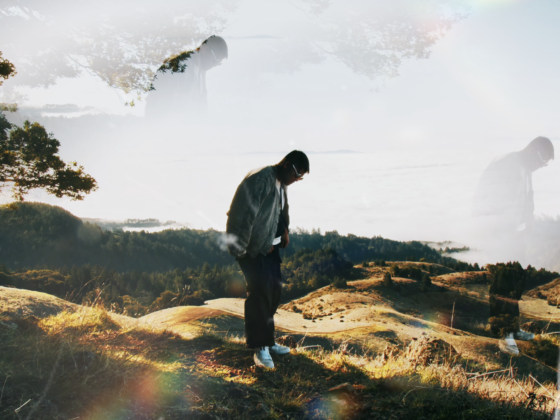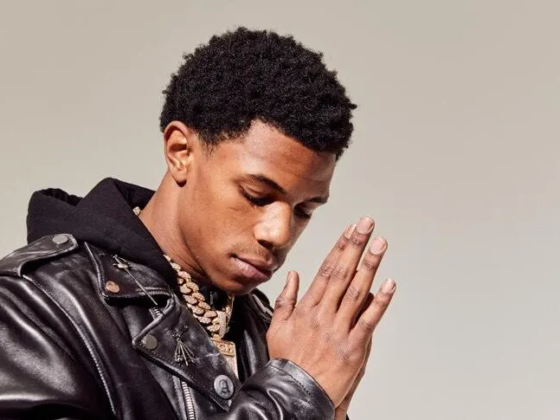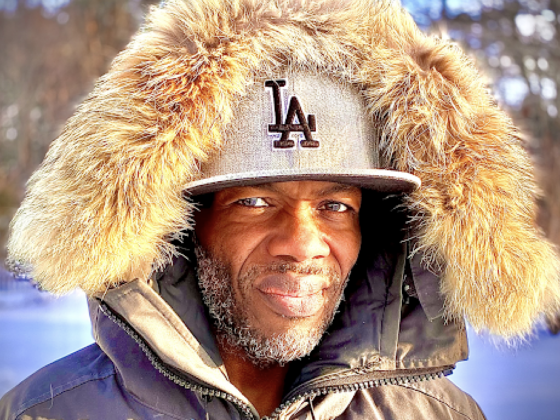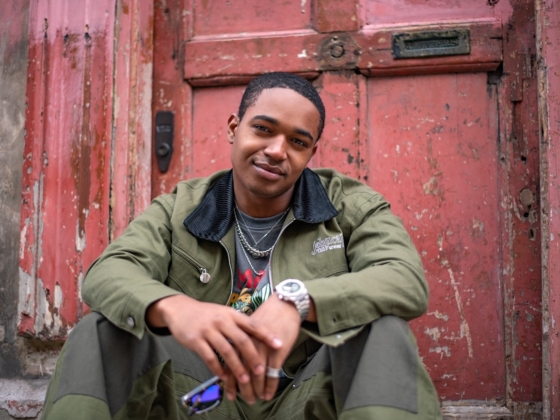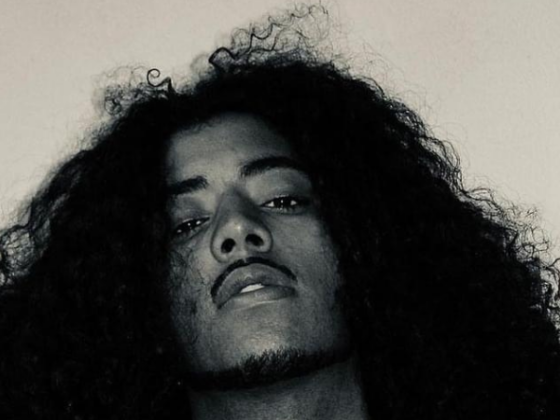Seattle-born rapper/songwriter Yonny has just shared his new music, a twelve song special deluxe version of his acclaimed EP Everywhere But Always. The new edition features three additional songs with features from hitmaker, Sango (Drake, Frank Ocean, Bryson Tiller) and Grammy-nominated singer-songwriter Ambré. It expands on his original statement presenting a fuller, more layered vision of his artistry. What stands out immediately is the balance he maintains between vulnerability and swagger: he can shift from introspective musings to head-nodding grooves without losing coherence.
Yonny is known for his candid songwriting and raw emotional grit. He leans into the connection between his music and his identity, using his music to reflect facets of belonging, internal struggle, and ambition. Yonny continues to stake his claim in the evolving Seattle hip-hop scene, showing that his voice is one to watch, not just locally but on a broader scale. We chat with the artist all about his new music, hometown of Seattle and exciting collaborations.
What made you decide to revisit Everywhere, But Always with a deluxe edition?
From the release of EBA up until now (September 2025), a lot has changed in my life. The initial two songs off the deluxe (I am/Jumbo Jet) were the first things I made right after releasing the project, and they were legitimately all the thoughts, feelings, fears, and hopes I had immediately after. I’ve changed a lot from then to now, and I knew that those songs were what I needed to bridge that gap from who I was back then, to who I have grown into now.
How do you feel the three new tracks complete or expand the story of the original project?
I felt like they almost were a continuation of the story in a way, kinda like picking up where we left off. All of ‘Everywhere, But Always’ was a look into my world growing up in Seattle. My own personal experiences, trials and tribulations I dealt with; a come up story. The deluxe begins this other half of that story, similar to an epilogue. It wraps it up with a ribbon and gives a glimpse into what's next for me.
The “Blue Door” remix with Ambré feels like a totally new experience. How did that collaboration come about, and what did she bring to the song?
A remix for one of the songs off the project was always an idea that floated around, it just became a matter of what song made sense, and who do we think would fit the best. It almost wasn’t gonna happen due to timeline and no real solid fits, but one day my a&r called me and pitched the idea of a remix to ‘Blue Door’ with Ambré. Initially, I hadn’t heard of her before but we got on a call and had a super good conversation that immediately let me know that she was the one! A couple days later I got her verse back and it couldn't have fit better, it really was meant to be. I feel like she absolutely captured the essence of the entire song and sonically added so much, she took it to a whole different level.
You and Sango finally linked up for “Jumbo Jet.” Why was now the right time, and what does it mean for you to work with a fellow Seattle heavyweight?
Man, Sango has really become a big brother to me and I truly have nothing but great things to say about him. Before any music was being made, I got intro’d to him by a mutual friend Jonathan Salmon. Got his cell and just started calling him here and there just asking for advice on how to navigate being an artist. Off the rip he was giving me all kinds of game and, most importantly, reassurance that I’m on the right path. He had sent me the beat for Jumbo Jet a while ago, and I immediately knew that it was special and the song came very shortly after. Being able to work with a legend from my city is nothing short of amazing, but also a truly humbling experience due to how easy and fun it was working with Sango. Wouldn't have wanted to come back any other way.
“I Am” strips things back to raw lyricism and acoustic strums. Was that vulnerability intentional from the start, or did it emerge in the studio?
So my writing process for a lot of songs is a lil weird. I don’t actually write much at all, funny enough. I learned about mobile garageband like 5 years ago, and it’s been my main way of making demos ever since. The way I go about it is I load up the beat on my phone, and just punch in lines throughout the entire song. Now this either can lead to the entire song being written this way (like I am/Jumbo Jet), or it can give me a good base to write the rest of it. But with ‘I am’, I was just locked in my car till 3 am on garageband, finding all the right words at the moment. I liken it to a “flow state”, like how athletes get when in game, that happens to artists too, I think. But with that kind of writing process, it’s as raw as it gets because I get to capture the emotion right then and there, utilizing that inspiration as soon as I get it.
A lot of people call you a voice for Seattle hip-hop. How do you personally define your role in the city’s music scene right now?
I think, more than anything, it’s truly been a blessing to feel like a part of history. Seattle is a musically rich city, birthing some legendary artists. Hip-hop has its roots cemented deep in the ground here, but it hasn’t really had the chance to get nurtured and grown as much in recent times. I say it all the time but it really does feel like there’s something in the air, and that the amount of talent coming out of Seattle is overflowing. The ability to add whatever I can to that, and give that next kid the same belief that it’s possible here too, that’s the ultimate satisfaction for me.
Seattle is often described as “overlooked” in hip-hop. What do you think people still don’t understand about the scene there?
I think it’s not hard to overlook a scene when there already are such big name players that have carried the genre for its entirety. For me, it’s never been an issue because I know all that means is that whenever we do have somebody make some noise out here it becomes a big deal. It’s also the fact that Seattle doesn’t have a particular “Sound”, meaning the amount of creativity is endless. People are always going to find interest in something they don't know about, and if that's gotta be us, then so be it.
Your music blends Ethiopian heritage with influences as wide as Nirvana and Dr. Dre. How do those worlds collide in your sound?
Growing up, I was like a sponge when it came to the music I listened to. It’s always been such an important part of my life, and I never really cared about genre as much as the feeling that it gave me. My house was a mix of late 90’s/early 2000’s r&b, ethiopian music, and my own dive into different genres as a youth.
With being from Seattle, the lasting effects of Nirvana were everywhere, and eventually made its way to my headphones as well. I was all over the place, at that same time I lived by the fact that nothing was beating ‘2001’ by Dr. Dre, that’s all I listened to from freshman to sophomore year of high school. I’ve always said that good music is what sticks with me, regardless of what kind it is, and I think I still follow that today. I think the effect that it had on me became my biggest attribute, and that’s my willingness to play around with different sounds and not box myself in. The freedom is what helps my art be the best it can be, and it lets me utilize that creativity to its full potential.
Looking back at Ghetto Sunset, how do you think you’ve evolved as a writer and storyteller?
I mean there’s a million ways I can say I’ve evolved since then. Ghetto Sunset is truly my baby and was my first try at expressing myself. I always laugh when I listen to that project and ‘Everywhere, But Always’ back to back because it almost seems like a completely different person. I learned so, so, so much from the process of making Ghetto Sunset, and it gave me the ability to create something like EBA, alongside the confidence that this dream is a lot more real than I imagined. The reaction from friends, family, and even strangers that, to this day, tell me how much they love that project makes my heart full. If I could go back and tell myself the impact it would have I would’ve thought I was crazy, but it goes to show that if you set your mind to something, and work hard enough at it, anything's possible.
Connect with Yonny: INSTAGRAM

